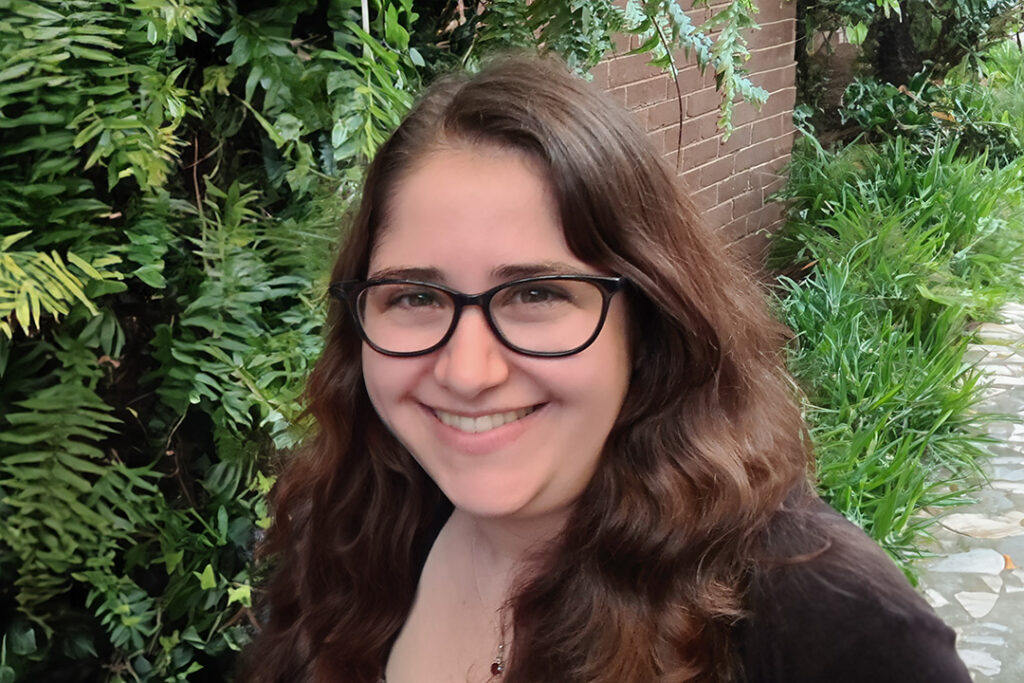The Path to Inclusion
Today is International Day of People with Disability, and I want to take this opportunity to share some reflections on living with a psychosocial disability. Hi, my name is Hannah. I am the Lived Experience Consumer Lead at Wellways, and I’d like to share what this day means to me.
Psychosocial disability is a relatively new term that gained more traction and visibility after the NDIS was introduced. However, I an often-invisible disability that means different things to different people, but in simple terms, it’s when mental health challenges severely affect your ability to engage in everyday life, making it difficult to connect with others, friendships, work, or take care of yourself. Mental health challenges can, of course, impact on all these things from time to time, but how deeply it impacts and disrupts your life determines when mental health challenges cross over into psychosocial disability.
Barriers faced by people with psychosocial disabilities
Living with a psychosocial disability often means navigating systems that fail to fully understand or support our needs.
There’s a strong correlation between psychosocial and physical disabilities, and it’s easy to understand why. I live with chronic pain and have a lived experience of mental health challenges, two deeply interconnected experiences that can intensify the other. Living with a physical disability often impacts mental health. Coping with limited mobility or the barriers of an inaccessible world can take a significant toll. Similarly, those with psychosocial disabilities may experience physical symptoms, such as chronic pain or fatigue, stemming from conditions like anxiety, depression, or stress. This overlap is particularly evident in the neurodivergent community where conditions that cause physical challenges are common.
However, our current system treats physical and mental health as separate, forcing individuals to navigate siloed services rather than receiving holistic support. Adding to this challenge is the requirement of a diagnosis to access support, which is an expensive, time-consuming and often inaccessible process that creates yet another barrier to receiving the support we need to thrive.
The importance of stability
Stability is crucial for good mental health, yet it’s often the first thing people with psychosocial disabilities lose. The constant fear of losing support weighs heavily, especially when the systems meant to provide stability feel increasingly unreliable.
While the government are taking important steps to re-structure the NDIS and the disability supports that sit within, and outside of it, government consultations are often rushed to meet tight deadlines for rolling out services. They frequently fail to provide fair and equitable access for people with psychosocial disabilities to participate, meaning their voices cannot shape the process and these services risk being poorly designed for their needs.
It’s hard to express the distress caused by an unpredictable, unreliable system.
Recognition of advocacy work
The progress we’ve seen in mental health and disability conversations is a testament to the tireless advocacy of those who share their stories. When I was in high school, mental health was rarely discussed; today, it’s part of public dialogue. This shift wouldn’t have happened without the bravery of individuals who speak out.
However, advocacy often comes at a high cost. People with psychosocial disabilities, already managing limited energy and resources, frequently take on unpaid labor to drive systemic change. These contributions deserve recognition, and advocacy efforts must create safe, inclusive spaces where people feel valued and supported.
Hope through progress and community
One thing I wish more people understood is that much of what they perceive psychosocial disability to be comes from inaccurate portrayals in the media or outdated societal narratives. This fuels stigma, especially when we don’t learn from lived experience.
I also wish people recognised that many of us are doing our best within systems that were not built for us. How can anyone truly thrive under the conditions currently in place? Despite the challenges, I remain hopeful because of the resilience and dedication of our community. But we can’t continue to advocate alone. This is where community awareness plays a critical role in improving accessibility and inclusivity. Change often starts at the local level, whether it’s councils prioritising accessibility in their initiatives, businesses consulting with people with lived experience, or simply running surveys to identify barriers. Even those without lived experience can act as allies, advocating for accessible design and inclusion from the outset.
How can you make a difference as a disability ally this International Day of People with Disabilities? Advocacy organisations depend on public support to drive change. For instance, something as simple as signing a petition, joining a mailing list, or sharing stories can create momentum for systemic reform.
It’s often said that everyone will, at some point, experience disability themselves or love someone who does. Yet too many wait until it directly impacts them to engage or try to understand it. There’s a wealth of resources and firsthand insights shared online by advocates and individuals with lived experience. Read them, learn from them, and let their stories inspire your action.
Inclusion starts with diverse groups learning, growing and working together. We need to keep advocating for psychosocial disability awareness, understanding and supports to break the barriers that hold us back.
Hannah
Be an advocate, be an ally
If you want to be an advocate or ally for psychosocial disability inclusion and you’re not sure where to start, you can explore some of the peak bodies and other disability associations listed on Job Access – peak bodies and other disability associations. You can also email the Wellways Lived Experience team if you need help navigating these organisations.
You can also join Wellways’ systems advocacy contact list. Systems advocacy about improving policies, services, and systems to make them fairer and more inclusive for everyone.
Email [email protected] to stay informed about up-coming community-based advocacy opportunities.
